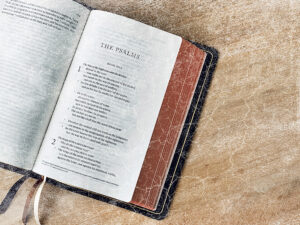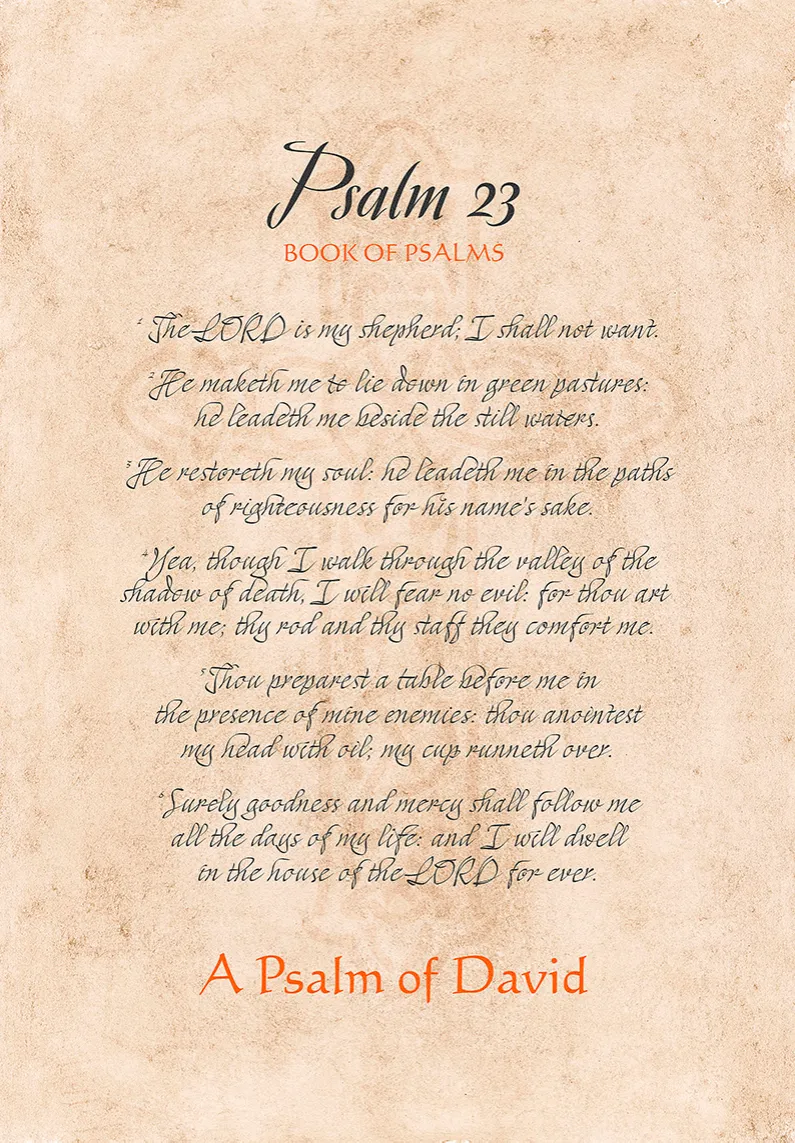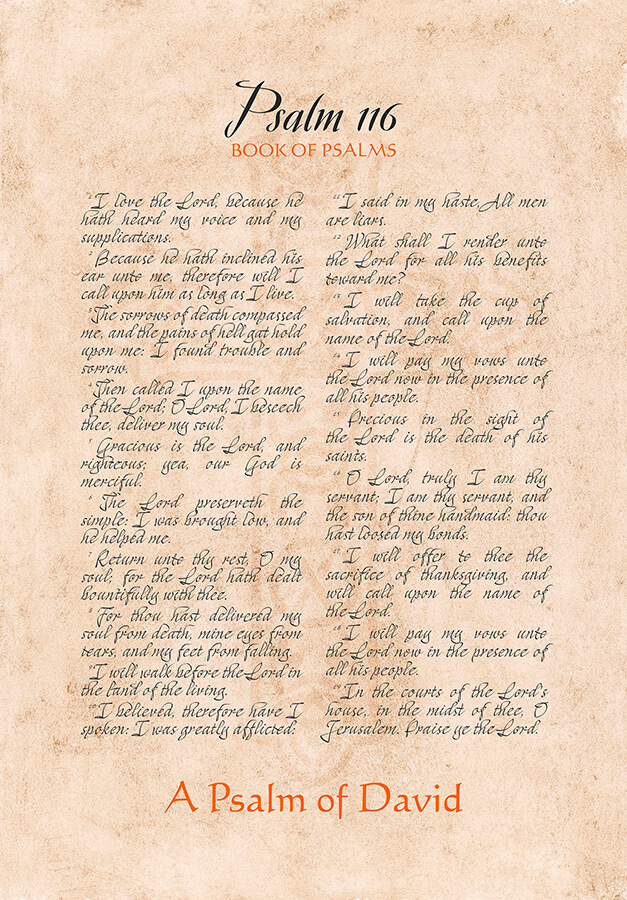Psalms of King David
The Psalms of King David is a collection of ancient Hebrew poetry and songs that can be found in the Bible.
This collection of 150 Psalms is known as the Book of Psalms and is attributed to King David, the renowned ruler of Israel during the 10th Century BCE.
These Psalms form the foundation of worship in Jewish and Christian traditions, providing comfort, guidance, and expression of faith.
This page may contain affiliate links for products designed by me, and/or services I recommend. If you make a purchase through these links, at no additional cost to you, I will earn a small commission.
The Psalter
In this article, I will also look at the Psalter which is part of the Book of Psalms.
Unlocking the Heart of the Psalms
The Psalter contains a liturgy which can be a calendar of special days and festivals and can also instruct worshipers which Psalms to recite and when to perform them.
It encompasses a wide range of themes and genres, offering a glimpse into the complex nature of our existence.
From joy and celebration to sorrow and lamentation, the Psalms present a diverse array of emotions and experiences that resonate with people from all walks of life.
These poems and chants are loved by Jewish and Christian communities and allow them to express their love and devotion to the Lord Our God.
These books tell the story of how God created the world and chose the Israelites as his special people.
The Psalms also mention creation, the exodus from Egypt, and the covenant with God, which are also found in the Pentateuch.
Without a doubt, the Book of Psalms is a rich collection of writings that explore the various aspects of human life and our spiritual connection with God.
Later I will be taking a closer look at some of the Psalms to reveal some powerful prayers with deep meaning embedded within these timeless verses.
The Structure of the Psalter
As part of the Book of Psalms, the Psalter, and the ancient Pentateuch have similarities as each is arranged into five books.
Some scholars believe the Psalms to be a second law or teaching for the people of Israel. The first set of laws was given in the Pentateuch, another name for the first five books of the Bible: Genesis, Exodus, Leviticus, Numbers, and Deuteronomy.
Each book concludes with a doxology or benediction praising God. There is a similarity to the five-fold division of the Torah, the first five books of the Old Testament.
Here are the Five Books and their corresponding range of Psalms:
- Book 1: The Genesis Psalms (Psalms 1–41)
- Book 2: The Exodus Psalms (Psalms 42–72)
- Book 3: The Leviticus Psalms (Psalms 73–89)
- Book 4: The Numbers Psalms (Psalms 90–106)
- Book 5: The Deuteronomy Psalms (Psalms 107–150)
This structure symbolizes a spiritual journey, guiding readers through various emotions and experiences.
The Bible may not provide titles or themes for these books, but scholars have suggested some based on the content and structure of the Psalms within each section.
This helps us understand the overarching themes present in these Psalms.
When it comes to the authorship of the Psalms, the Bible doesn’t mention the creators of many of them. However, some Psalms do have attributions mentioned in their titles or superscriptions.
Here are some of the attributed authors and the Psalms associated with them:
- King David: Traditionally regarded as the primary author of the Psalms, with 75 attributed to him. These are Psalms 3—9; 11—32; 34—41; 51—65; 68—70; 86; 101; 103; 108—110; 122; 124; 131; 133; and 138—145. Furthermore, Psalm 2 is credited to David in Acts 4:25, and Psalm 95 in Hebrews 4:7.
- Asaph (and family): Asaph is credited with 12 Psalms, specifically Psalms 50; 73—83.
- The Sons of Korah: They are linked with 11 psalms, which include Psalms 42; 44—49; 84—85; and 87—88.
- Heman (with the sons of Korah): Heman is attributed to one psalm, Psalm 88.
- Solomon: Associated with two psalms, Psalm 72 and Psalm 127.
- Moses: Attributed to one psalm, Psalm 90.
- Ethan the Ezrahite: Connected to one psalm, Psalm 89.
- Anonymous: The remaining 48 psalms lack specific author attributions.
It’s fascinating to consider that, despite some attributions being cited, the accuracy and dependability of these claims are hotly debated among scholars.
The intriguing possibility that the psalms were crafted by various authors between the 9th and 5th centuries BC only adds a rich layer of mystery to their enigmatic origins.
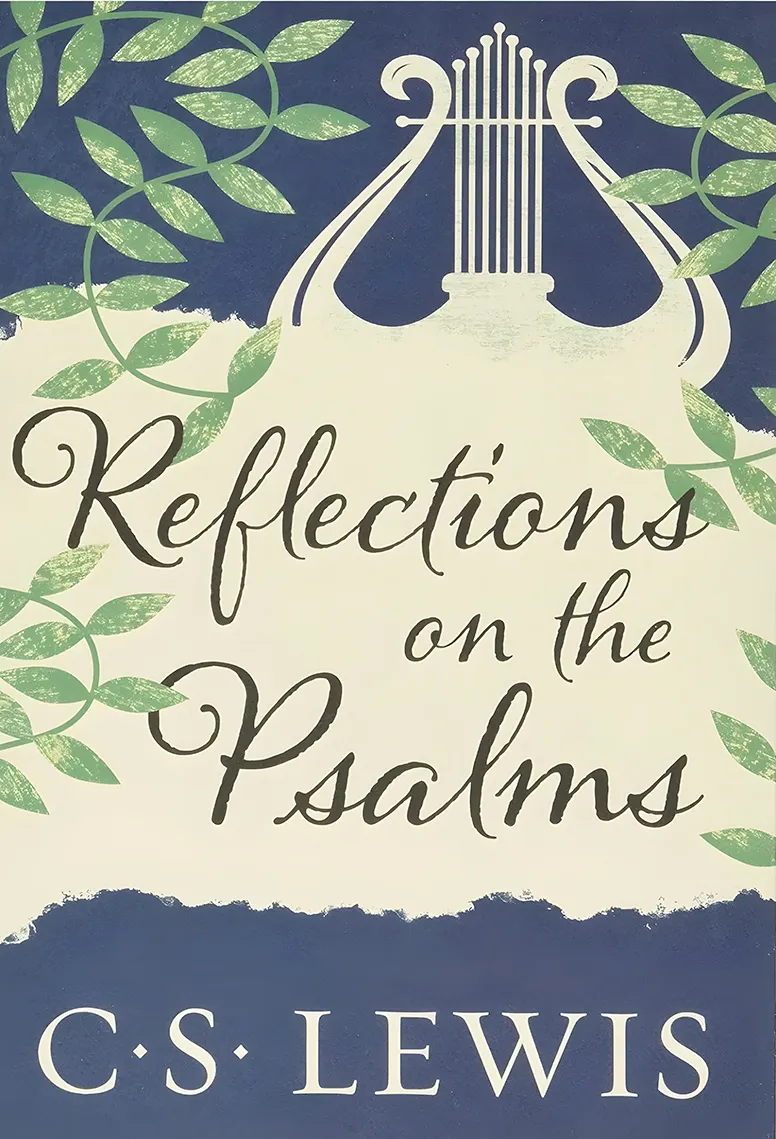
by C. S. Lewis
Top Selling Book on Amazon.com
Over 1500 ratings!
A repackaged edition of the revered author’s moving theological work in which he considers the most poetic portions from Scripture and what they tell us about God, the Bible, and faith.
Paperback
$10.49

What are the 4 types of Psalms?
From joy and celebration to sorrow and lamentation, the Psalms present a diverse array of emotions and experiences that resonate with people from all walks of life.
Some of the most prominent themes and types that can be found in this collection include:
Hymns or Psalms of Praise
These Psalms celebrate the greatness, power, and attributes of God. They inspire awe and adoration, calling believers to worship with joyful hearts.
These Psalms praise and extol God’s greatness, power, and attributes. They express adoration and awe toward the divine.
Psalms of Lament
Lament Psalms convey deep sorrow, grief, or distress. They are a means for the psalmist to pour out their anguish and seek solace and comfort from God. These psalms express deep sorrow, anguish, or distress.
They provide a voice for individuals experiencing pain, offering solace and the assurance that God hears their cries.
Thanksgiving Psalms
These Psalms express gratitude and joy for God’s blessings, deliverance, and provision. They serve as reminders of God’s faithfulness and encourage a heart of thanksgiving.
Wisdom Psalms
These Psalms offer practical guidance, moral teachings, and insights into righteous living. They impart wisdom and encourage readers to align their lives with God’s principles.
There is also another type of Psalm known as Royal Psalms.
Royal Psalms
These Psalms focus on the Davidic Kingship and the promise of a future messianic king. They proclaim God’s eternal covenant with the descendants of David.
These different types of Psalms provide a diverse range of expressions and serve various spiritual purposes.
Who wrote the Psalms Of David?
Traditionally, the Psalms of David are attributed to King David himself. According to the biblical narrative, David was not only a skilled musician but also a man after God’s own heart.
It is believed that he composed these psalms as a means to express his deep faith, emotions, and experiences in his journey with God.
What is the main message of the Psalms?
The Psalms of King David carry several overarching messages that continue to resonate with believers today.
Some key themes include:
- Trust in God: The Psalms repeatedly emphasize the importance of trusting in God’s faithfulness, even in times of adversity and uncertainty.
- Seeking God’s Presence: David’s psalms reflect his deep longing for God’s presence and a desire to dwell in His sanctuary.
- Confession and Repentance: Many Psalms highlight the need for personal reflection, confessing sins, and seeking forgiveness from God
- Praise and Worship: The Psalms celebrate and exalt God’s majesty, power, and love, encouraging believers to offer heartfelt worship and praise.
- God’s Sovereignty: The Psalms remind readers of God’s sovereignty over all creation, emphasizing His supreme authority and control over every aspect of life.
- God’s Deliverance: Throughout the Psalms, David recounts his personal experiences of God’s deliverance from enemies and hardships, inspiring hope and trust in God’s intervention.
- God’s Guidance: The Psalms express the psalmist’s reliance on God’s wisdom and guidance in making decisions and navigating life’s challenges.
- God’s Love and Compassion: The Psalms of David highlight God’s unfailing love, mercy, and compassion towards His people, assuring them of His presence and care in every circumstance.
The Most Powerful Prayer in the Book of Psalms
Psalm 51:
A Prayer of Penitence and Restoration
Within the Psalms, this prayer stands out as one of the most powerful and renowned expressions of repentance and seeking God’s mercy.
Let’s explore this exceptional prayer and its significance in the spiritual journey.
Unveiling Its Potency
“Create in me a clean heart, O God, and renew a right spirit within me.” – Psalm 51:10
Written by King David after his transgression with Bathsheba, holds immense power and vulnerability. It serves as a model of repentance, acknowledging our need for God’s forgiveness and restoration.
This prayer resonates with believers seeking to reconcile with God and experience His transformative grace.
The Potency of Psalm 51
Psalm 51 encapsulates the essence of genuine repentance, offering hope and assurance to those burdened by guilt and sin. Its timeless words remind us that no matter the depth of our transgressions, God’s mercy is boundless, and His forgiveness is available to all who humbly seek it.
Psalm 51 – (King James Version)
1 Have mercy upon me, O God, according to thy lovingkindness: according unto the multitude of thy tender mercies blot out my transgressions.
2 Wash me throughly from mine iniquity, and cleanse me from my sin.
3 For I acknowledge my transgressions: and my sin is ever before me.
4 Against thee, thee only, have I sinned, and done this evil in thy sight: that thou mightest be justified when thou speakest, and be clear when thou judgest.
5 Behold, I was shapen in iniquity; and in sin did my mother conceive me.
6 Behold, thou desirest truth in the inward parts: and in the hidden part thou shalt make me to know wisdom.
7 Purge me with hyssop, and I shall be clean: wash me, and I shall be whiter than snow.
8 Make me to hear joy and gladness; that the bones which thou hast broken may rejoice.
9 Hide thy face from my sins, and blot out all mine iniquities.
10 Create in me a clean heart, O God; and renew a right spirit within me.
11 Cast me not away from thy presence; and take not thy holy spirit from me.
12 Restore unto me the joy of thy salvation; and uphold me with thy free spirit.
13 Then will I teach transgressors thy ways; and sinners shall be converted unto thee.
14 Deliver me from bloodguiltiness, O God, thou God of my salvation: and my tongue shall sing aloud of thy righteousness.
15 O Lord, open thou my lips; and my mouth shall shew forth thy praise.
16 For thou desirest not sacrifice; else would I give it: thou delightest not in burnt offering.
17 The sacrifices of God are a broken spirit: a broken and a contrite heart, O God, thou wilt not despise.
18 Do good in thy good pleasure unto Zion: build thou the walls of Jerusalem.
19 Then shalt thou be pleased with the sacrifices of righteousness, with burnt offering and whole burnt offering: then shall they offer bullocks upon thine altar.
Other Popular Psalms
Psalm 23 (King James Version)
‘The Lord is My Shepherd; I shall not want’ – Psalm 23:1
Perhaps the most well-known psalm, Psalm 23 is a comforting and reassuring passage that speaks of God’s presence and protection even in the darkest of times. It is often read at funerals to offer solace and hope to mourners.
1 The Lord is my shepherd; I shall not want.
2 He maketh me to lie down in green pastures: he leadeth me beside the still waters.
3 He restoreth my soul: he leadeth me in the paths of righteousness for his name’s sake.
4 Yea, though I walk through the valley of the shadow of death, I will fear no evil: for thou art with me; thy rod and thy staff they comfort me.
5 Thou preparest a table before me in the presence of mine enemies: thou anointest my head with oil; my cup runneth over.
6 Surely goodness and mercy shall follow me all the days of my life: and I will dwell in the house of the Lord for ever.
Read more about Psalm 23
https://psalmshop.com/psalm-23-meaning-lord-is-my-shepherd/
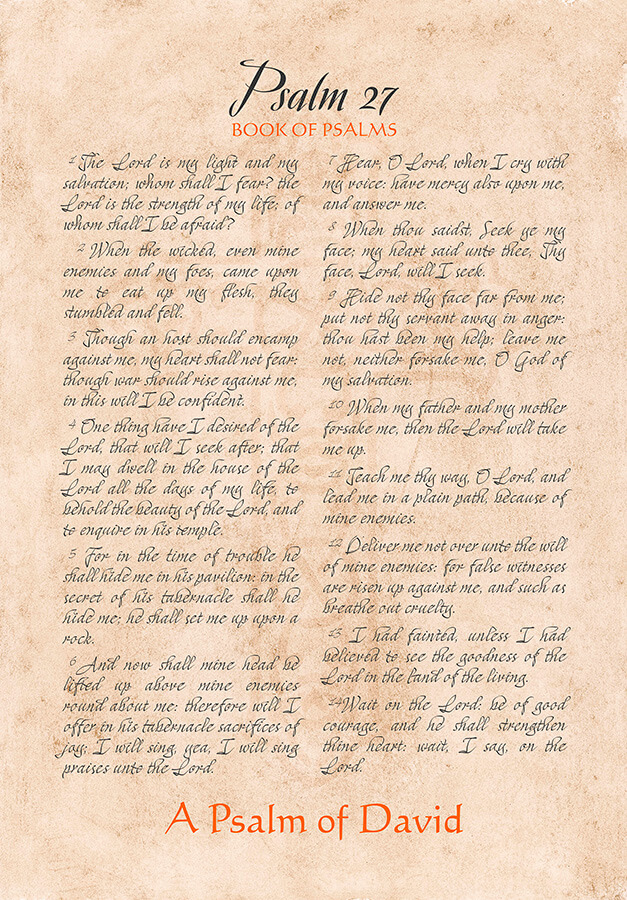
Psalm 27 (King James Version)
‘The Lord is My Light and My Salvation’ -Psalm 27:1
This psalm speaks of God’s goodness and faithfulness, and the comfort that comes from seeking His presence. It includes the famous line, “The Lord is my light and my salvation; whom shall I fear?” which can offer comfort to those facing the loss of a loved one.
1 The Lord is my light and my salvation; whom shall I fear? the Lord is the strength of my life; of whom shall I be afraid?
2 When the wicked, even mine enemies and my foes, came upon me to eat up my flesh, they stumbled and fell.
3 Though an host should encamp against me, my heart shall not fear: though war should rise against me, in this will I be confident.
4 One thing have I desired of the Lord, that will I seek after; that I may dwell in the house of the Lord all the days of my life, to behold the beauty of the Lord, and to enquire in his temple.
5 For in the time of trouble he shall hide me in his pavilion: in the secret of his tabernacle shall he hide me; he shall set me up upon a rock.
6 And now shall mine head be lifted up above mine enemies round about me: therefore will I offer in his tabernacle sacrifices of joy; I will sing, yea, I will sing praises unto the Lord.
7 Hear, O Lord, when I cry with my voice: have mercy also upon me, and answer me.
8 When thou saidst, Seek ye my face; my heart said unto thee, Thy face, Lord, will I seek.
9 Hide not thy face far from me; put not thy servant away in anger: thou hast been my help; leave me not, neither forsake me, O God of my salvation.
10 When my father and my mother forsake me, then the Lord will take me up.
11 Teach me thy way, O Lord, and lead me in a plain path, because of mine enemies.
12 Deliver me not over unto the will of mine enemies: for false witnesses are risen up against me, and such as breathe out cruelty.
13 I had fainted, unless I had believed to see the goodness of the Lord in the land of the living.
14 Wait on the Lord: be of good courage, and he shall strengthen thine heart: wait, I say, on the Lord.
Psalm 116 (King James Version)
A Song of Gratitude and Trust is a heartfelt expression of gratitude and trust in God’s faithfulness. The psalmist reflects on their personal experience of distress and how God answered their cries for help. This psalm resonates with a profound sense of gratitude for God’s deliverance, as the psalmist declares their unwavering commitment to worship and serve the Lord. It serves as a reminder that even in the face of adversity, God is a source of hope, comfort, and salvation.
1 I love the Lord because he hath heard my voice and my supplications.
2 Because he hath inclined his ear unto me, therefore will I call upon him as long as I live.
3 The sorrows of death compassed me, and the pains of hell gat hold upon me: I found trouble and sorrow.
4 Then called I upon the name of the Lord; O Lord, I beseech thee, deliver my soul.
5 Gracious is the Lord, and righteous; yea, our God is merciful.
6 The Lord preserveth the simple: I was brought low, and he helped me.
7 Return unto thy rest, O my soul; for the Lord hath dealt bountifully with thee.
8 For thou hast delivered my soul from death, mine eyes from tears, and my feet from falling.
9 I will walk before the Lord in the land of the living.
10 I believed, therefore have I spoken: I was greatly afflicted:
11 I said in my haste, All men are liars.
12 What shall I render unto the Lord for all his benefits toward me?
13 I will take the cup of salvation, and call upon the name of the Lord.
14 I will pay my vows unto the Lord now in the presence of all his people.
15 Precious in the sight of the Lord is the death of his saints.
16 O Lord, truly I am thy servant; I am thy servant, and the son of thine handmaid: thou hast loosed my bonds.
17 I will offer to thee the sacrifice of thanksgiving, and will call upon the name of the Lord.
18 I will pay my vows unto the Lord now in the presence of all his people.
19 In the courts of the Lord‘s house, in the midst of thee, O Jerusalem. Praise ye the Lord.
Meaning of the Psalms
Navigating the Depths of Faith
The Psalms hold a rich and profound meaning that transcends time and culture. Let’s delve into the depths of their significance and explore the profound truths they convey.
Expressions of Authentic Emotions
The Psalms serve as a powerful vehicle for expressing the full range of human emotions before God. They teach us that it is acceptable to bring our joys, sorrows, fears, doubts, and even anger to the Lord.
The Psalms validate our experiences and remind us that God welcomes our honest and heartfelt prayers.
Communion with the Divine
Through the Psalms, we witness the intimate communion between humanity and divinity. They offer a glimpse into the yearning of the human soul to connect with God and find solace in His presence.
The Psalms guide us in cultivating a deeper relationship with our Creator and experiencing His love and faithfulness.
Divine Guidance and Wisdom
Embedded within the Psalms are timeless truths and practical wisdom for navigating life’s challenges. They provide guidance on moral living, decision-making, and the pursuit of righteousness.
By meditating on the Psalms, we gain insights into God’s ways and discover principles that lead to a fulfilling and purposeful life.
Hope in Times of Trouble
The Psalms offer a lifeline of hope amidst trials and tribulations. They remind us that even in the darkest moments, God is our refuge and strength. The Psalms provide solace, encouragement, and assurance that God’s steadfast love and faithfulness will sustain us through every storm.
Anticipation of the Messiah
The Psalms contain prophecies and foreshadowings of the coming Messiah, Jesus Christ. They point to the ultimate fulfillment of God’s redemptive plan and the establishment of His kingdom.
As we delve into the Psalms, we encounter glimpses of the Messiah’s role as the suffering servant, the righteous king, and the ultimate source of salvation.
What happened to David in the Psalms?
The Psalms of King David provide glimpses into the life and experiences of David. They depict various significant events and emotions David encountered throughout his life, including:
- Victories and Triumphs: David’s psalms reflect his gratitude and praise to God for his victories in battles and his establishment as the king of Israel.
- Persecution and Betrayal: David faced numerous challenges, including persecution from enemies, betrayal by close associates, and the anguish that accompanies such experiences. These struggles find expression in his psalms.
- Repentance and Forgiveness: One of the most well-known events in David’s life is his affair with Bathsheba and subsequent repentance. Psalms such as Psalm 51 reveal David’s deep remorse and plea for God’s forgiveness.
- Dependence on God: David’s psalms convey his deep reliance on God’s strength, guidance, and protection. They illustrate his unwavering faith in God’s faithfulness and his acknowledgment of God as his ultimate source of help and salvation.
Overall, the Psalms of King David serve as a testament to his spiritual journey, his intimate relationship with God, and the various triumphs and trials he experienced throughout his life.
To Conclude
The Psalms of King David ingrained within the Psalter contains a splendid collection of ancient Hebrew poetry.
These sacred verses have a timeless and universal appeal for believers of all times and places. These spiritual gems include sincere prayers, joyful praises, wise teachings, and intimate communion with God.
Dealing with the complexities of human emotions, the Psalms help us to deepen our relationship with the divine and to find hope in the midst of trials.
They stress trust in God, seeking His presence, confession and repentance, praise and worship, God’s sovereignty, deliverance, guidance, and His love and compassion.
Through these Psalms, we learn about David’s life experiences, victories, persecutions, repentance, and David’s profound dependence on God.
The Psalms of King David continue to inspire us, providing comfort, guidance, and encouragement in our own spiritual journeys. They invite us to explore their meaning, unlock their power, and encounter the transforming presence of God.
